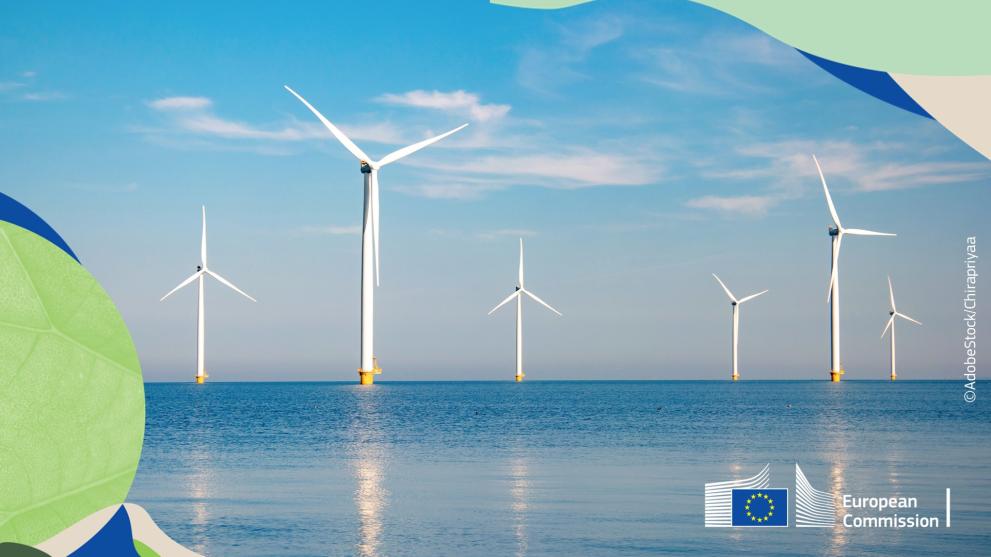
The Commission has today published its assessments of the draft updated National Energy and Climate Plans for 2021-2030 (NECPs) of Belgium, Ireland and Latvia, which include recommendations on where these countries should raise their ambitions in line with EU targets for 2030.
These documents follow the individual assessments of 21 EU countries’ draft NECPs, published in December, together with a Communication assessing the aggregated impact of all of the draft NECPs, which already took account of the contributions from Belgium, Ireland and Latvia to the energy and climate objectives. It is now up to EU countries to take full account of the recommendations on the draft plans and submit their final updated NECPs by 30 June 2024.
Today’s assessments are accompanied by an explanatory factsheet per country (Belgium, Ireland, Latvia). The Commission has today also published a revised recommendation to Czechia on their draft updated NECP with regards to achieving the objectives of Czechia under the Effort Sharing Regulation (ESR). Czechia provided clarity on the correct projection figures and as a result this recommendation replaces the Commission’s first recommendation on ESR to Czechia.
These updated NECPs set out each EU country's roadmap to collectively meet the EU's legally binding target of 55% net greenhouse gas emission reductions by 2030, and the corresponding energy and climate objectives, as revised in the different aspects of the so-called ‘Fit for 55’ package. As in December, today's assessment sees the Commission calling on these EU countries to enhance their efforts on greenhouse gas emissions reductions and set out clearer plans on how they intend to adapt to climate change.
December’s key findings and recommendations
In December, the Commission’s assessment of the cumulative impact of the draft NECPs (including draft figures from Belgium, Ireland and Latvia) found that
- the draft NECPs are not yet sufficient to reduce net greenhouse gas emissions by at least 55% by 2030; current measures would lead to a reduction of 51%
- further ambition is needed to close a gap of 6.2 percentage points in the effort sharing sectors compared to the 40% target
- there is a gap of around -40 to -50 million tonnes of CO2 equivalent (MtCO2eq) compared to the -310 MtCO2eq target under the Land Use, Land Use Change and Forestry (LULUCF) Regulation, showing an enhancement of the carbon sink is necessary
- for renewable energy, the current drafts would lead to a share of 38.6-39.3% of renewables in the energy mix by 2030, compared to the 42.5% target in the revised Renewable Energy Directive
- for energy efficiency, the current drafts would lead to 5.8% energy efficiency improvements, compared to the target of 11.7% in the revised Energy Efficiency Directive
The Commission is still waiting for Austria, and Poland to submit their draft plans – and has already taken the first step in infringement proceedings against them for their failure to respect the deadline of the end of June 2023 for the draft NECP. Bulgaria was also subject to infringement proceedings, but submitted its draft updated NECP to the Commission on 20 February 2024. The Commission will proceed with assessing its NECP.
Background
National Energy and Climate Plans for 2021-2030 are required under the 2018 EU Governance Regulation. They outline how EU countries intend to meet their 2030 energy and climate targets. EU countries submitted their previous NECPs in 2019. Since then, many key pieces of EU legislation have been updated as part of the ‘Fit for 55’ package/European Green Deal or through the the REPowerEU plan, and so the plans now require an update to align with the increased ambition of the revised EU legislation.
Related links
- Communication: An EU-wide assessment of the draft updated NECPs (December 2023)
- Press release: Commission calls to improve updated NECPs (December 2023)
- Questions and answers (December 2023)
- National energy and climate plans
- European Climate Law (related documents)
Details
- Publication date
- 23 February 2024
- Author
- Directorate-General for Energy
